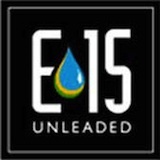NACS Cautions Retailers Concerning EPA's Decision to Authorize E15
 |
SEE ALSO:TACH Fights For Truth About Ethanol
ALEXANDRIA, Va., Oct. 13 October 13, 2010; Retailers should exercise extreme caution when considering whether to sell E15 (gasoline containing 15 percent ethanol) following the U.S. Environmental Protection Agency's (EPA) decision today to authorize the use of E15 in vehicles manufactured in model year 2007 and later, said the National Association of Convenience Stores (NACS). NACS represents the convenience and petroleum retailing industry, which sells an estimated 80 percent of the motor fuels purchased in the United States.
"EPA's decision to allow the use of E15 in certain vehicles does nothing to remove retailers' obligations to ensure that all of their equipment is lawfully certified to store and sell this product," said NACS Vice President of Government Relations John Eichberger. "Further, limiting E15 use to only vehicles manufactured since 2007 could expose retailers to significant liability risk if a consumer were to fuel a non-approved engine with E15."
Currently, fuels retailers are only authorized to sell fuel that contains up to 10 percent ethanol. Further, most vehicle warranties authorize fuels that contain no more than 10 percent ethanol.
Federal law requires that motor fuels retailers must use only equipment that has been listed by a nationally recognized testing laboratory, such as Underwriters Laboratories (UL), as compatible with the fuel that they store and dispense. Failure to use such listed equipment technically violates regulations of the Occupational Safety and Health Administration, many state and local regulations and fire codes, underground storage tank insurance policies and state tank fund programs and many bank loan covenants. In addition, the use of non-listed equipment could expose retailers to claims of gross negligence, which immediately triggers exemplary damages.
In addition, under the Clean Air Act, motor fuels retailers might be considered liable for emissions increases that may occur if E15 is used in non-approved engines. Customers may also attempt to hold retailers liable for damages to engines that occur because of their misfueling.
To help mitigate concerns about misfueling, EPA also today proposed a requirement that E15 dispensers be appropriately labeled according to specific EPA standards to ensure consumers are provided adequate notice regarding the fuel they are purchasing. NACS is concerned, however, that misfuelings could be both accidental and intentional and that labels may not provide the necessary protections for retailers to limit potential liability.
"When regulations phased out lead from gasoline in the early 1980s, consumers went to extraordinary measures to bypass the fill pipe-nozzle restrictions that were designed to prevent misfueling," said Eichberger. "EPA then punished retailers for not physically preventing self-service consumers from introducing leaded gasoline into unleaded-only vehicles."
Although EPA has indicated that it does not plan to pursue similar enforcement against retailers, the Clean Air Act includes a private right of action empowering citizens; including groups that are opposed to E15; to sue retailers for such misfuelings.
There are also concerns about E15's compliance with various federal, state and local air control regulations. For example, conventional gasoline blended with 10 percent ethanol is allowed to exceed volatility control standards (measured in terms of Reid Vapor Pressure and expressed in pounds per square inch) by one pound. Federal law does not extend that one-pound waiver to fuels containing more than 10 percent ethanol, and that means that retailers who choose to sell E15 are potentially liable for violating air quality control regulations.
"EPA has placed retailers in a very precarious position," Eichberger said. "By issuing this decision before all testing has been completed, EPA is bifurcating the engine market, creating a scenario in which misfueling could be rampant and retailers will be forced to pay the bill. Further, by restricting the engines that are authorized to use E15, EPA is implying that E15 may cause performance, emissions or safety issues in other engines, thereby increasing the potential liability to retailers of E15. Finally, by issuing this decision before other laws and regulations could be amended to allow for the lawful sale of E15, EPA has authorized a fuel that could trigger widespread violations and liability for retailers who decide to act on this decision."
NACS supports legislation (H.R. 5778) introduced this Congress that would reform equipment certification procedures to enable retailers to have existing equipment certified as compatible with E15 and would provide limited liability protection against misfueling if the retailer complies with EPA's labeling regulations. NACS further supports additional legislative efforts that would protect market participants from product liability suits if EPA's decision to authorize E15 results in engine performance or safety issues.
Founded in 1961 as the National Association of Convenience Stores, NACS is the international association for convenience and petroleum retailing, representing more than 2,100 retail and 1,500 supplier member companies. The U.S. convenience store industry, with nearly 145,000 stores across the country, posted $511 billion in total sales in 2009, with $328 billion in motor fuels sales.


